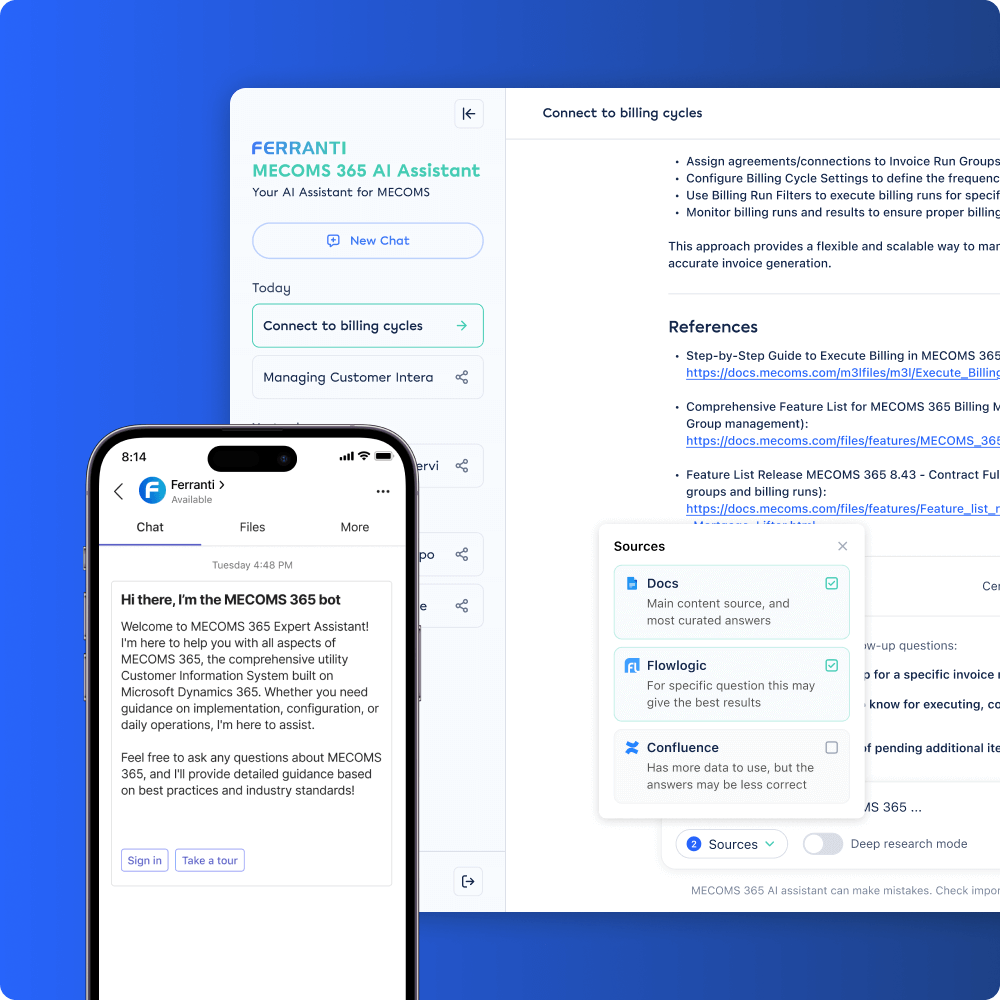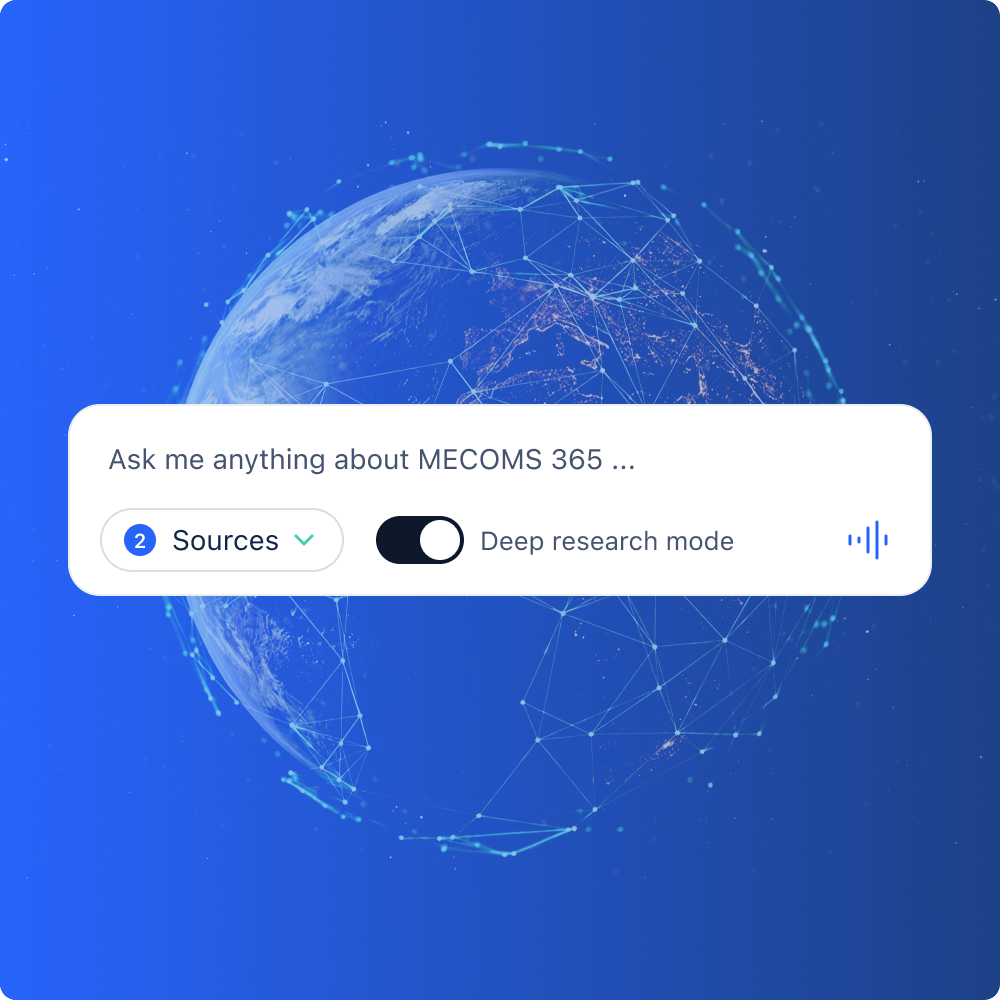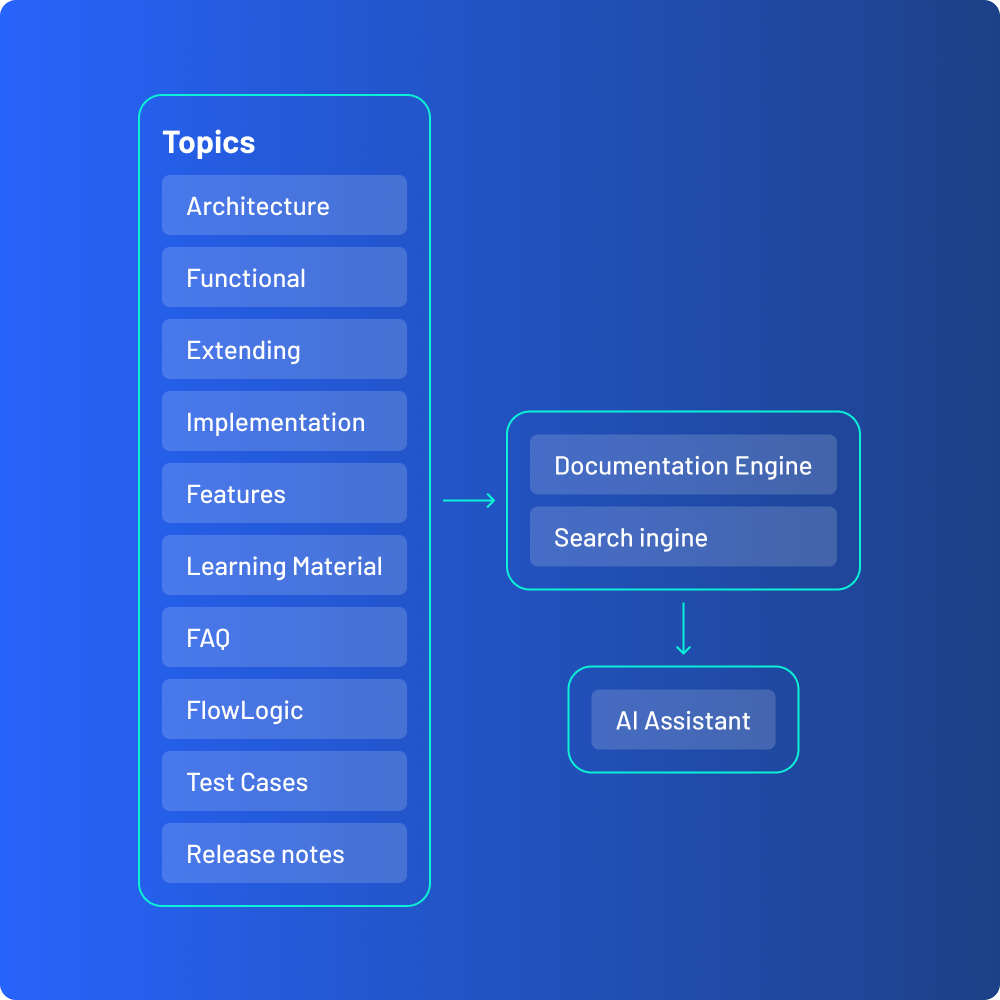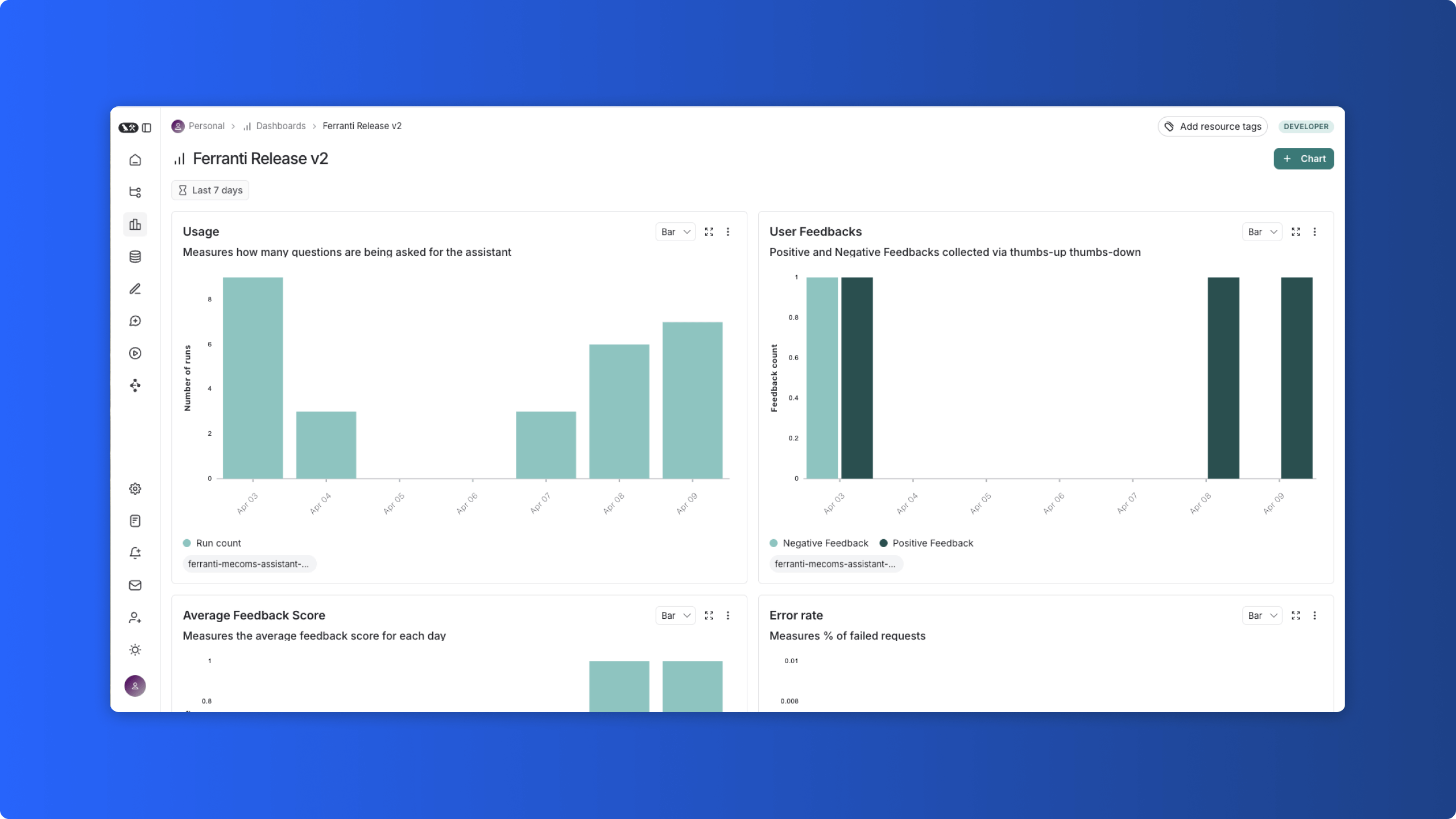Faktion built a multi-agent AI knowledge platform for Ferranti, enabling rapid access to complex MECOMS 365 documentation. The solution reduced search time by 75%, improved context accuracy to 88%, and increased user satisfaction by over 10 points.

Ferranti is a leading software provider in the energy and utilities sector. Their flagship product, MECOMS 365, provides utilities worldwide with tailored solutions. Given the platform’s flexibility and global reach, MECOMS 365 offers comprehensive and highly detailed documentation to support implementation scenarios across utilities worldwide. Hence, accurate and quick responses to customer requirements and complex integration scenarios are fundamental to operational success and sustained business growth.
However, the necessary knowledge for the implementation of MECOMS 365 was not efficiently accessible. Technical and functional consultants spend up to one-third of their time searching MECOMS 365’s extensive manual for detailed implementation guidelines, significantly delaying client integration.
Our knowledge system slows us down. Consultants spend hours of precious time searching for information, impacting timelines, costs, and scalability.

To address Ferranti’s knowledge access challenges, Faktion developed an advanced Multi-Agent Knowledge Assistant with several critical, interconnected components, uniquely tailored to Ferranti’s specific operational needs:
A conversational assistant lets Ferranti’s consultants and partners quickly retrieve precise, context-aware insights, clarifying ambiguities to cut search delays and boost self-sufficiency.
A specialised retrieval mode employing advanced reasoning to handle complex, highly technical, or nuanced queries. This mode systematically plans and performs deeper searches, retrieving comprehensive, detailed responses essential for accurate and efficient project implementation.
An automated pipeline converts unstructured MECOMS documentation into enriched, searchable markdown with semantic embeddings and smart metadata, boosting content discoverability and retrieval speed.
After converting unstructured MECOMS documentation from various databases into enriched, searchable markdown with semantic embeddings and smart metadata, then it is stored in a centralised knowledge base to enable scalable AI.

A conversational assistant lets Ferranti’s consultants and partners quickly retrieve precise, context-aware insights, clarifying ambiguities to cut search delays and boost self-sufficiency.

A specialised retrieval mode employing advanced reasoning to handle complex, highly technical, or nuanced queries. This mode systematically plans and performs deeper searches, retrieving comprehensive, detailed responses essential for accurate and efficient project implementation.

An automated pipeline converts unstructured MECOMS documentation into enriched, searchable markdown with semantic embeddings and smart metadata, boosting content discoverability and retrieval speed.
This assistant delivers highly accurate, context-aware answers because it is built on Faktion’s proprietary evaluation-driven development framework, which ensures continuous, measurable improvement through systematic testing, rigorous human and model evaluations, comprehensive feedback loops, and controlled semantic experimentation.

A suite of specialised AI agents collaboratively monitor, analyse, and optimise knowledge retrieval and content quality. This multi-agent approach includes:
These interlinked components, underpinned by the rigorous evaluation-driven methodology, collectively deliver a highly reliable, continuously improving knowledge-management system tailored explicitly to Ferranti’s complex operational environment. The Multi-Agent Knowledge Platform ensures Ferranti’s teams and partners rapidly access accurate, verified information, enabling enhanced productivity, reduced errors, accelerated onboarding, and improved scalability.
Faktion implemented a structured and iterative approach to develop Ferranti’s AI solution, emphasising rigorous evaluation, continuous user validation, and agile deployment methodologies.
Faktion first conducted a comprehensive strategy track through interactive workshops involving Ferranti’s stakeholders, identifying clear business goals, success metrics, and the most impactful AI use cases. This strategic foundation ensured alignment with Ferranti’s broader vision while precisely addressing operational needs for efficient knowledge management.
Based on insights gathered during scoping, Faktion built an initial working prototype of the AI-driven knowledge assistant using limited, controlled data sets. Early testing and iterative feedback loops enabled rapid identification of improvements, usability enhancements, and verification of feasibility.
After successful validation of the prototype, Faktion fully integrated the knowledge-management system into Ferranti’s production environment, leveraging Azure AI, Azure Cognitive Search, and advanced retrieval-augmented generation (RAG) methodologies. Real-time data integration ensured immediate and measurable impact on Ferranti’s knowledge workflows. Continuous monitoring, structured user feedback cycles (leveraging tracing tools such as Langsmith and Langfuse), and iterative improvement cycles ensure ongoing enhancement of system performance, user experience, and scalability.
Following initial deployment, the system has been methodically scaled across multiple Ferranti teams, use cases, and processes. Future plans include seamless integration with Microsoft Teams, migration to Ferranti’s Azure environment, expanded content coverage (Flowlogic, test cases, and release notes), and regular exploration of state-of-the-art language models to further optimise system capabilities